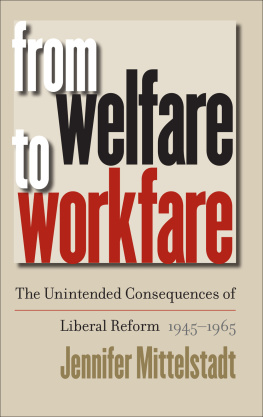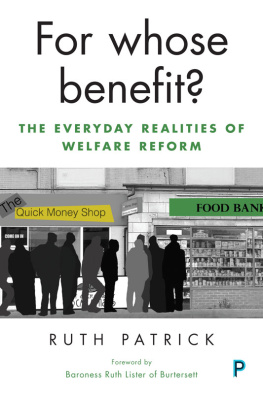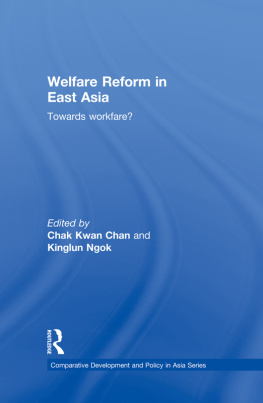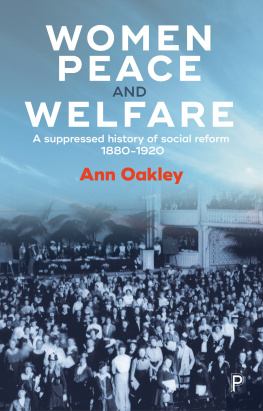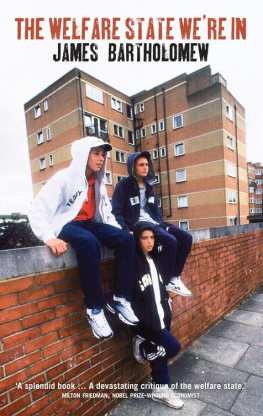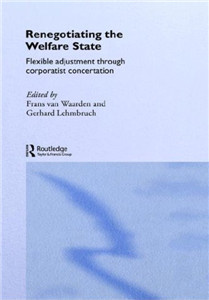ACKNOWLEDGMENTS
Numerous individuals and institutions helped bring this book to fruition. From my first research forays into the archives in 1996, I was fortunate enough to encounter people generous with their encouragement, resources, time, and ideas, and for that I am sincerely grateful.
This book began as a dissertation at the University of Michigan. There, I was lucky to have Nancy Burns, Sonya Rose, Maris Vinovskis, and Terry McDonald to guide me. They provided me with the flexibility to pursue my interests and the structure to make sure the project succeeded. Maris stoked my passion for social policy, and his unflagging energy inspired me. Sonya helped me widen the scope of this project, and her enthusiasm buoyed me. Terry's astute comments and questions, from the beginning of the dissertation through the revision of the manuscript, not only directed this project but also shaped my whole approach to the craft of history.
As I researched the book, I met archivists and librarians whose help was essential. Tom Rosenbaum of the Rockefeller Archive Center supported this project from the moment he heard about it. I benefited from both his technical assistance and his insights about history and welfare politics. Dave Klaasen made my long stay at the Social Welfare History Archives in Minneapolis a pleasure. He brought important, little-known collections to my attention, discussed characters and events from the collections, and was just plain fun to spend time with. Librarians at the Center for American History helped me wade through the uncataloged collection of the Field Foundation. And I could not have completed this project without the help of archivists and librarians at the Wisconsin Historical Society, the Bentley Library at the University of Michigan, the Library of Congress, the National Archives, the Lyndon Baines Johnson Presidential Library, and the Schlesinger Library at Radcliffe.
Several institutions provided support for the completion of the project. The Rockefeller Archive Center and the Social Welfare History Archives both generously provided travel and research grants for the use of their collections. The Mellon Dissertation Fellowship and the Rackham Predoctoral Fellowship at the University of Michigan helped me conduct the initial research and writing for the project. My department heads at Pennsylvania State University, Gregg Roeber and Carolyn Sachs, allowed me to focus on finishing this manuscript, and the College of Liberal Arts at Penn State supported the final preparations of the manuscript and publication of the book.
As this project wended its way from dissertation to completed manuscript, I received suggestions and comments from participants and audiences at conferences and seminars for which I am grateful. These include the Institute for Research on Women and Gender Seminar at the University of Michigan, the Brooklyn College History Seminar, the Journal of Policy History Conference, the Social Science History Association Annual Meetings, and the Organization of American Historians Annual Meeting. Readers at Social Politics also helped me hone my arguments.
I am lucky to have colleagues willing to share their own research with me, including Alan Derickson, Rick Perlstein, and especially Andy Morris. Many were generous enough to read portions of the manuscript or the entire manuscript, helping me correct, rethink, and improve the project. I owe heartfelt thank-yous to Edward Berkowitz, Eileen Boris, Marissa Chappell, Lori Ginzberg, Alice Kessler-Harris, Sonya Michel, Andy Morris, Alice O'Connor, Ann Orloff, and Gina Morantz Sanchez. Cynthia Harrison read the manuscript twice (and one chapter many times!), and our email conversations over several years forced me to rethink my major assumptions, dive back into the archives, and focus my arguments. I am grateful for her engagement with this project. Joanne Goodwin read this manuscript three times by my count, and her expertise and guidance not to mention her enthusiasmwere invaluable. She is largely responsible for any contributions this book can be said to make, and I am indebted to her beyond measure. I was also fortunate to have my dissertation catch the eye of Kate Torrey at UNC Press. Her initial suggestions and Chuck Grench's later guidance have reshaped this book. Amanda McMillan and Paul Betz at UNC Press led me through the editorial process from beginning to end skillfully and efficiently.
Over the years, in various institutions, I found colleagues who helped make my work enjoyable. At Brooklyn College, Ted Burrows, Phil Gallagher, Arline Neftleberg, and Jocelyn Wills encouraged my early progress on the book. My new colleagues at Penn StateAlan Derickson, Lori Ginzberg, Joan Landes, Sarah Lawrence, Sally McMurry, Holloway Sparks, Maria Truglia, and Nan Woodruffare already like old friends, and supported me as I completed the book.
As I worked on this project, I gained inspiration from my close friends. Chris Bass, Barbara Cole, Catherine Foley, Maria Mesner, Laura Minikel, Jack Quigley, Shalei Simms, Susan Stolar, and Simone Wennik buoyed me through the many years of this project. Alexander Shashko rose above and beyond the obligations of friendship, not only providing encouragement and letting me blow off steam, but reading every single line of the manuscript several times over, valiantly (and I hope not vainly) attempting to turn me into a better writer.
Without my family, I could not have completed this book. My grandparents, Alice Keery and Olga and Fred Mittelstadt, provided love and kindness, and in not talking about the project, reminded me that many things are more important than writing books. Bob, Roberta, and Rebeca Matthews were close to me while I was writing this book (across the street!), and were always interested and supportive. My brother, Joel Mittelstadt, and my sister-in-law, Mueni Maingi, made the final years of writing this book in New York much more fun. My parents, Paul Mittelstadt and Linda and Peter Geiss, have supported all of my choices for many years. My mother watched the news on welfare closer than even I did, and passed on every relevant article and reference she came across. Together, my parents provided a haven for me when I was worn out, and always believed in my work and me. They are my biggest cheerleaders, and this book is dedicated to them. Finally, I was lucky to share this intellectual journey with Aaron Matthews, who is a storyteller of a different kind. His insights and questions, through the many drafts of the book that he read, improved the book immeasurably. More important, being with him made the time spent writing the bookand not writing the bookthe best years of my life.

